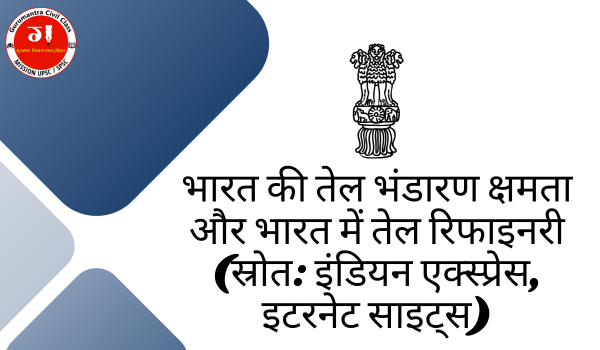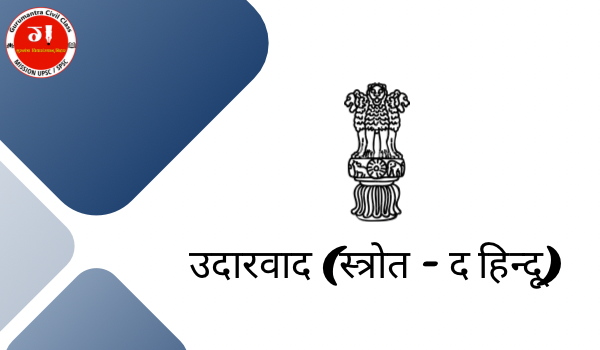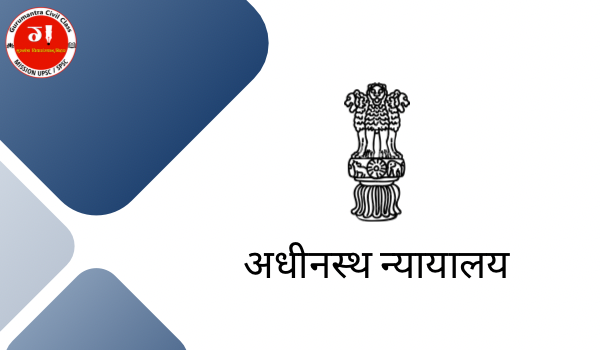आखिर क्यों रेगुलेटिंग एक्ट 1773 में संशोधन करना पड़ा? Why did the Regulating Act 1773 have to be amended?
By - Gurumantra Civil Class
At - 2024-01-09 22:01:08
(7).jpeg)
रेग्यूलेटिंग एक्ट में मूल्यांकन और संसोधन (Evaluation and Amendment to the Regulating Act)
रेग्यूलेटिंग ऐक्ट एक प्रकार का समझौता था, जिसमें अनेक विषयों को जानबूझ कर अस्पष्ट रखा गया था। (The Regulating Act was a kind of compromise, in which many subjects were deliberately kept unclear.)
1. गवर्नर जनरल तथा परिषद् के झगड़े (The feud between the Governor General and the Council) :
गवर्नर जनरल के पास अपनी परिषद् के सदस्यों को नियंत्रित करने की शक्ति नहीं थी। वह अपनी परिषद् के सदस्यों के बहुमत के विरुद्ध कार्य नहीं कर सकता था। प्रथम गवर्नर जनरल वारेन हेस्टिंग्स और परिषद् के सदस्यों के बीच लगातार विवाद की स्थिति बनी रही। अधिनियम के अनुसार गवर्नर जनरल की परिषद् में निर्णय बहुमत से होना था, किंतु फ्रांसिस की अगुवाई में परिषद् के तीन सदस्य गवर्नर जनरल को भ्रष्ट समझते थे, जिससे अक्टूबर 1774 से सितंबर 1776 तक प्रशासनिक गतिरोध बना रहा। वारेन हेस्टिंग्स तो दुःखी होकर अपना त्यागपत्र तक भेज चुका था, किंतु माॅनसन की मृत्यु से स्थिति में सुधार हुआ क्योंकि नया पार्षद नियुक्त होने तक हेस्टिंग्स अपने निर्णायक मत का प्रयोग कर सकता था। (The Governor General did not have the power to control the members of his council. He could not act against the majority of the members of his council. There was a constant dispute between the first Governor General Warren Hastings and the members of the Council. According to the Act, the Governor-General's Council was to be decided by a majority, but three members of the Council, led by Francis, considered the Governor-General corrupt, leading to an administrative stalemate from October 1774 to September 1776. Warren Hastings had sent his resignation in grief, but Manson's death improved the situation because Hastings could exercise his casting vote until a new councilor was appointed.)
2. सर्वोच्च नयायालय का अस्पष्ट कार्य-क्षेत्र (Ambiguous jurisdiction of the supreme court) :
1773 के अधिनियम ने न्यायालय तो स्थापित कर दिया, किंतु उसका अधिकार-क्षेत्र अस्पष्ट और त्रुटिपूर्ण था।इसमें यह स्पष्ट नहीं था कि न्यायालय भारतीय कानून का अनुसरण करेगा या फिर ब्रिटिश कानून का। न्यायाधिकरण और परिषद् के अधिकार-क्षेत्र और संबंधों को लेकर भी स्थिति स्पष्ट नहीं थी। (The Act of 1773 established the Court, but its jurisdiction was ambiguous and flawed. It was not clear whether the Court would follow Indian law or British law. The position was also not clear with regard to the jurisdiction and relations of the Tribunal and the Council.)
.jpg)
3. अन्य प्रेसीडेंसियों पर अपूर्ण नियंत्रण (Incomplete control over other presidencies) :
इस अधिनियम द्वारा कलकत्ते में एक केंद्रीय प्राधिकरण स्थापित करने का प्रयास भी असफल रहा। बंबई तथा मद्रास की प्रांतीय सरकारों ने गवर्नर जनरल से पूछे बिना स्वयं हैदरअली और मराठों से युद्ध आरंभ कर दिया। (An attempt to establish a central authority in Calcutta by this act was also unsuccessful. The provincial governments of Bombay and Madras started war with Hyder Ali and the Marathas themselves without asking the Governor General.)
अतः इस अधिनियम से न तो राज्य को कंपनी पर निश्चित नियंत्रण स्थापित हुआ और न ही निदेशकों को अपने कार्यकर्ताओं पर, न गवर्नर जनरल को अपनी परिषद् पर और न ही कलकत्ता प्रेसीडेंसी को बंबई तथा मद्रास प्रेसीडेंसियों पर। फिर भी, अधिनियम इसलिए महत्त्वपूर्ण था, क्योंकि अब यह मान लिया गया कि ईस्ट इंडिया कंपनी व्यापारिक संस्थान नहीं बल्कि एक राजनीतिक सत्ता है। इस अधिनियम से कंपनी पर ब्रिटिश संसद के नियंत्रण की शुरूआत हुई और भारत में ब्रिटिश साम्राज्यवाद का स्वप्न साकार रूप लेने लगा। (Therefore, by this act, neither the state established definite control over the company nor the directors over its workers, nor the governor general over its council, nor the Calcutta presidencies over the Bombay and Madras presidencies. Nevertheless, the Act was significant because it was now recognized that the East India Company was not a commercial institution but a political entity. This act marked the beginning of the British Parliament's control over the Company and the dream of British imperialism in India began to take shape.)

1781 का संशोधित अधिनियम (Amending Act, 1781)
रेग्यूलेटिंग ऐक्ट का कमियों के कारण ब्रिटिश संसद ने 1781 में दो कमेटियों की नियुक्ति की, जिसमें पहली को भारत में प्रशासनिक व न्यायिक व्यवस्था की समीक्षा करनी थी और दूसरी कमेटी को कर्नाटक युद्ध के कारणों का पता लगाना और सामुद्रिक तट के शासन की जाँच करना था। (Due to the shortcomings of the Regulating Act, the British Parliament appointed two committees in 1781, in which the first was to review the administrative and judicial system in India and the second committee was to find out the causes of the Carnatic War and investigate the governance of the sea coast. )
पहली कमेटी की रिपोर्ट के आधार पर 1781 में ही एक संशोधनात्मक अधिनियम पारित किया गया। इस अधिनियम के द्वारा रेग्यूलेटिंग ऐक्ट की कमियों को दूर करने और सर्वोच्च न्यायालय के अधिकार-क्षेत्र को स्पष्ट करने का प्रयास किया गया। (Based on the report of the first committee, an amendment act was passed in 1781 itself. Through this Act, an attempt was made to remove the shortcomings of the Regulating Act and to clarify the jurisdiction of the Supreme Court.)
1. अधिनियम में यह व्यवस्था की गई कि उच्चतम न्यायालय सरकारी अधिकारी के रूप में किये गये कंपनी के अधिकारियों व कर्मचारियों के विरुद्ध कोई कार्यवाही नहीं कर सकता। इस प्रकार कंपनी के पदाधिकारियों को सर्वोच्च न्यायालय के अधिकार-क्षेत्र से बाहर कर दिया गया। (It was provided in the Act that the Supreme Court cannot take any action against the officers and employees of the company who were made as government officials. Thus the office bearers of the company were kept out of the jurisdiction of the Supreme Court.)
2. गवर्नर जनरल तथा उसकी परिषद् द्वारा व्यक्तिगत या सम्मिलित रूप से बनाये गये नियमों, विनियमों या तत्संबंधी विचार-विमर्श को उच्चतम न्यायालय के न्यायिक क्षेत्राधिकार से मुक्त कर दिया गया। (The rules, regulations or deliberations thereof made by the Governor General and his council individually or jointly were exempted from the judicial jurisdiction of the Supreme Court.)
3. इस अधिनियम के अनुसार गवर्नर जनरल और उसकी परिषद् को देशी अदालतों के फैसलों की अपीलें सुनने और प्रांतीय अदालतों के कार्य-संचालन के लिए नियम और उपनियम बनाने का अधिकार मिला। (According to this act, the Governor General and his council were empowered to hear appeals from the decisions of the local courts and to make rules and bye-laws for the conduct of the business of the provincial courts.)
4. सपरिषद् गवर्नर जनरल अपील सुनने के संबंध में सर्वोच्च न्यायाधिकरण बनाया गया। 5,000 पौंड या उससे अधिक की धनराशि के दीवानी मुकदमों की अपील सुनने का अधिकार सम्राट और उसकी परिषद् को प्राप्त था। ( The Supreme Tribunal was created to hear the appeals of the Governor-General in Council. The emperor and his council had the right to hear appeals from civil cases involving an amount of £5,000 or more.)
5. इस अधिनियम द्वारा सर्वोच्च न्यायालय के अधिकार-क्षेत्र को स्पष्ट कर दिया गया और कलकत्ता के सभी निवासियों पर उसकी अधिकारिता को प्रमाणित किया गया। (This Act clarified the jurisdiction of the Supreme Court and proved its jurisdiction over all the residents of Calcutta.)
6. ऐक्ट में यह प्रावधान किया गया कि कोई भी कानून बनाने तथा उसका क्रियान्वयन करते समय भारतीयों (हिंदुओं और मुसलमानों) के सामाजिक तथा धार्मिक रीति-रिवाजों का सम्मान किया जाए। (It was made in the Act that while making and implementing any law, the social and religious customs of Indians (Hindus and Muslims) should be respected.)

इस प्रकार इस अधिनियम से रेग्यूलेटिंग ऐक्ट में महत्वपूर्ण परिवर्तन किये गये और सरकार को सुदृढ़ करने का प्रयास किया गया। रेग्यूलेटिंग ऐक्ट 11 वर्ष तक चलता रहा। 1784 में इसके स्थान पर पिट का इंडिया ऐक्ट पारित किया गया। वारेन हेस्टिंग्स ही एक ऐसा गवर्नर जनरल था जिसने इस अधिनियम के अनुसार शासन किया। (Thus, with this act, important changes were made in the Regulating Act and efforts were made to strengthen the government. The Regulating Act continued for 11 years. Pitt's India Act was passed in its place in 1784. Warren Hastings was the only Governor General who ruled according to this act.)
-द्वारा - चन्द्रशिव सर (Gold Medal Awarded Tutor)
आवश्यक सूचना - इस लेख में 10 गलती ढूंढने वाले को Gurumantra General Package का One month Subscription पुरस्कार के रुप में दिए जाएंगे।
.jpg)
Comments
Releted Blogs

भारत की तेल भंडारण क्षमता और भारत में तेल रिफाइनरी (स्रोत: इंडियन एक्स्प्रेस, इटरनेट साइट्स)
By - Admin
भारत की तेल भंडारण क्षमता कितनी है ? भारत की तेल रिफाइनरी व्यवस्था कैसी है?

उदारवाद (स्त्रोत - द हिन्दू)
By - Admin
वर्तमान युग में उदारवाद को सुचारू करना क्यों आवश्यक है ?

